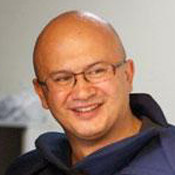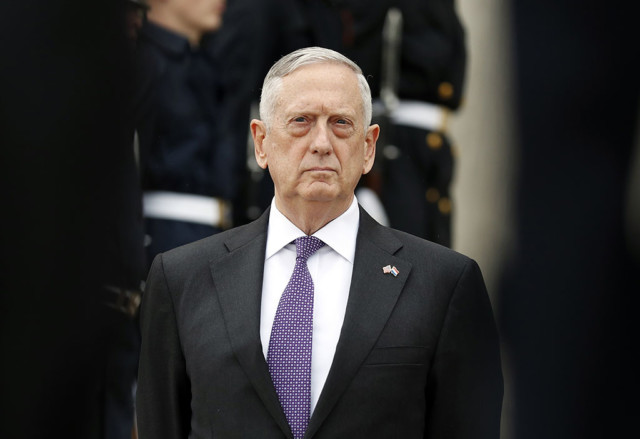Squeezed out: that’s what’s happening to ISIL in Syria and Iraq, according to U.S. Defense Secretary Jim Mattis.
CGTN’s Tony Cheng explains.
U.S. Defense Secretary James Mattis arrived for an unscheduled visit to Iraq on Tuesday morning.
For General Mattis, the main issue on the agenda was the ongoing war against ISIL.
In meetings with commanders of the U.S.-led coalition, he discussed the latest offensive in Tal Afar, expressing cautious optimism but warning the war was far from over.
But it’s Iraqi troops who are on the front lines of the action on the ground.
In his meetings with Iraqi officials, Mattis was keen to emphasize U.S. support for the Iraqi government and praise the troops who had taken on ISIL.
“Right now we see an Iraqi army that has restored Iraqi pride,” said Mattis. “It has taken back from Daesh (Islamic State) so many cities, so much land, it has freed so many members of Iraqi public from the enemy, and we are going to be with you as you go forward.”
The red carpet was also laid out for the Defense Secretary when he arrived in Erbil later on Tuesday afternoon.
There were smiles from the President of Kurdistan’s regional government, Masoud Barzani but frustration behind closed doors.
U.S. officials said the main purpose of General Mattis’ trip to Erbil was to request Kurdish leaders to postpone their referendum on independence scheduled for September 25.
But unlike previous Kurdish administrations who’ve submitted to U.S. requests to stifle their desire for independence, on this occasion, they seem determined to press ahead.
President Barzani’s senior adviser had anticipated the request to postpone, but he could think of few arguments that would turn the Kurds off the path to independence.
“From the U.S., we expect their support,” said Hemin Hawrami, Senior Adviser to President Barzani. “If not, they will say it’s not good timing. But our question to the U.S. is, when is it good timing? Just tell us when in your perspective is a good time for the people of Kurdistan to decide in a peaceful, democratic way on their destiny.”
Just over a hundred kilometers down the road, Iraqi troops were making their slow advance on Tal Afar.
For the moment, the Kurds, Iraqis and Americans are united in one shared goal: to defeat ISIL
However, that brittle alliance of shared interest may not hold for long.
 CGTN America
CGTN America
 In this Tuesday, Aug. 15, 2017, file photo, U.S. Defense Secretary Jim Mattis stands as he waits for Netherlands Minister of Defense Jeanine Hennis-Plasschaert during an enhanced honor cordon at the Pentagon in Washington. U.S. As Mattis arrived in Baghdad Tuesday, he said says Islamic State militants are caught in a military vise that will squeeze them from both ends of the Euphrates River valley that bisects Iraq and Syria. (AP Photo/Alex Brandon)
In this Tuesday, Aug. 15, 2017, file photo, U.S. Defense Secretary Jim Mattis stands as he waits for Netherlands Minister of Defense Jeanine Hennis-Plasschaert during an enhanced honor cordon at the Pentagon in Washington. U.S. As Mattis arrived in Baghdad Tuesday, he said says Islamic State militants are caught in a military vise that will squeeze them from both ends of the Euphrates River valley that bisects Iraq and Syria. (AP Photo/Alex Brandon)
